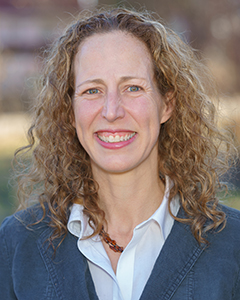Professor
College of Letters & Science | Department of Religious Studies
Hometown: Jenkintown, PA
Susan B. Ridgely is a professor of Religious Studies at the University of Wisconsin-Madison and the author of Practicing What the Doctor Preached: At Home with Focus on the Family (Oxford University Press, 2016), When I was a Child: Children’s Interpretations of First Communion (University of North Carolina Press, 2005), and two edited volumes on children and religion.
Talks:
The December Dilemma: Celebrating Holidays in a multi-cultural society
This talk offers a history of the debates around how Christmas, Hanukkah, Kwanzaa, and Diwali have been celebrated in America, particularly in American public schools and institutions. In doing so, it highlights the differing visions of the public school’s role in the shaping of American society.
Exploring the Desegregation of the Raleigh Diocese: Catholics, Race, and Social Justice
In 1953, when Black parishioners (re)entered the white church of Our Lady of Guadalupe after the parish’s integration in rural North Carolina, the New York Times reported it as a singular event. However, it reflected the ways that religion, race, and relationships were contested and sacralized throughout America. This talk connects the much deeper history of the parish to the history of the U.S. by exploring how this exceptional parish continuously negotiated the meaning of being a “truly universal church” within a segregated society for more than a century.
Conservative Christianity and American Politics: What's New When we Take Religion seriously
Based on a decade of archival and ethnographic research, including work on the weekly congressional Bible studies, this talk explores how theological beliefs and religious commitments ground the way many conservative Christians understand the interconnections between Christianity and American politics. Far from being a means to an end, I explore how for many voters and politicians religion exists as the central means of organizing structures in society – the church, the family, and the government – to maintain America’s divinely-ordained role as a model nation.
